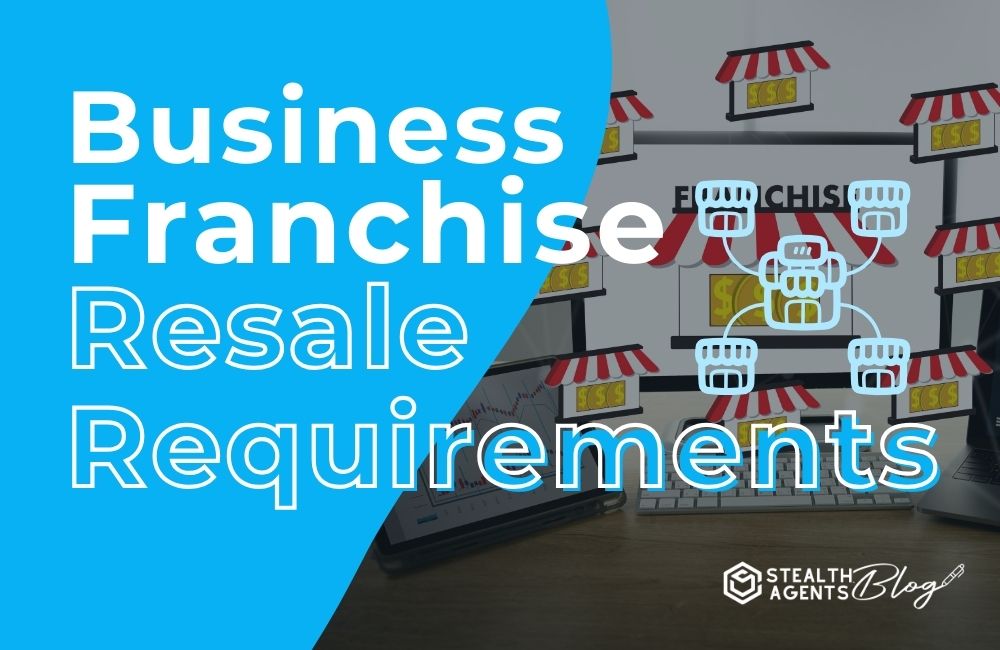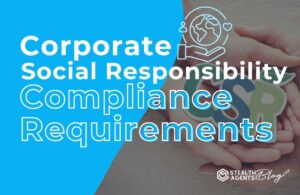Navigating Business Franchise Resale Requirements
If you’re thinking about selling a business franchise, welcome to the resale rollercoaster! It’s not quite the straight-shot ride of opening a business or leisurely uphill climb of building a brand, but with the right know-how, your franchise resale can be a triumphant loop-the-loop adventure.
A franchise resale occurs when a franchisee sells their operating unit to a new owner. It’s an intricate process, crucial for both the original company and the new entrepreneur. This blog post is your all-access guide to understanding the must-haves, the must-dos, and the must-not-forgets when it comes to franchise resale requirements. Whether you’re a franchisee looking to sell, or an aspiring franchisor ready to take up the reins, this article will be your trusted advisor.
Understanding Franchise Resale
First things first, what exactly is a franchise resale, and why does it matter?
The Resale Process Unwrapped
Picture a relay race baton handover — with legacies, reputations, and legal footprints involved. This handover has ripple effects on brand equity, regional trust, and community stability, which makes the process much more than just a bureaucratic hurdle. From nuanced operational intricacies to established customer relationships, franchise resale is a holistic transfer of business threads.
The Legal Tape
When it comes to franchise resale, legal considerations cannot be ignored. Franchise agreements are typically subject to state and federal laws, and business sale regulations. The selling party has to uphold disclosure requirements, whereas a purchasing party must ensure they’re not unwittingly buying into a legal quagmire.
Documentation and Approvals
Mountains of paperwork come with the territory of any business sale, but when it’s a franchise, the range gets more rugged.
Forms and Formalities
You can’t just slap a ‘for sale’ sign on a franchise, sit back, and wait for buyers to bite. Paperwork is the unsung hero of the resale process: transfer applications, financial statements, and often contracts assist in formalizing the transaction. Each franchisor has its own set of documentation requirements, and navigating the checklist is like fitting a square peg into a round hole — one mostly shaped by legal proficiency.
The Franchisor’s Nod
Franchisees, old and new, need the franchisor in their corner. The approval process typically involves detailed financial vetting, but can also extend to interviews and assessments to ensure the new franchisee can maintain the brand’s standards and reputation.
Financial Aspects
Money makes the franchise world go round, and it certainly spins the resale carousel.
Transfer and Evaluation Costs
Every procession from one owner to another comes with a price. Transfer fees, appraisal costs, or even assistance in securing financing are all parts of the financial jigsaw puzzle. Understanding how to set the right asking price is a delicate art, balancing the brand’s perceived value, assets, and streamlined operations for a fresh start.
The Valuation Tango
Figuring out what your franchise is worth is complex. It’s not just about numbers; it’s about past performance, future projections, and the ever-elusive brand ‘goodwill’. Professional valuations are a must, which can provide a realistic financial picture for negotiation.
Operational Transition
Handing over the keys is nowhere near the end — it’s the beginning of an operational relay.
Training Day
New franchise owners need the equivalent of a degree in ‘Your Franchise 101’. The incumbent owners must offer comprehensive knowledge transfer, ensuring the new stewards have the tools and tactics to maintain the business integrity.
Revving Up for the New Lap
During a sale, operations should remain smooth. Staff should be reassured, operations streamlined, and service quality maintained. It’s a strategic dance of continuity and change, ensuring that while the business may switch hands, its essence remains unchanged.
Marketing and Communication
Announcing a resale to the world is equal parts art and science.
The Rollout Plan
It’s not just about slapping ‘Under New Management’ onto the storefront. A strategic communication plan should engage not just the immediate locality, but also potential stakeholders such as investors, suppliers, and even industry publications.
Customer Relations in Motion
Don’t skip a beat when it comes to keeping your existing customers informed and content through the transition. They’re often your best brand ambassadors and can serve as a lighthouse of trust for the business.
Conclusion
Selling or buying a franchise is more than a business transaction; it’s about safeguarding legacies and ensuring sustainable growth. Compliance with franchise resale requirements is the lynchpin that holds it all together. It ensures a smooth transition for all parties involved and paves the way for future success.
In this thoroughfare of resale requirements, remember: understanding the process is only the first loop. Each twist and turn will test your balance, but with intention, preparation, and a positive outlook, your franchise resale can be the beginning of a fresh, satisfying ride.










